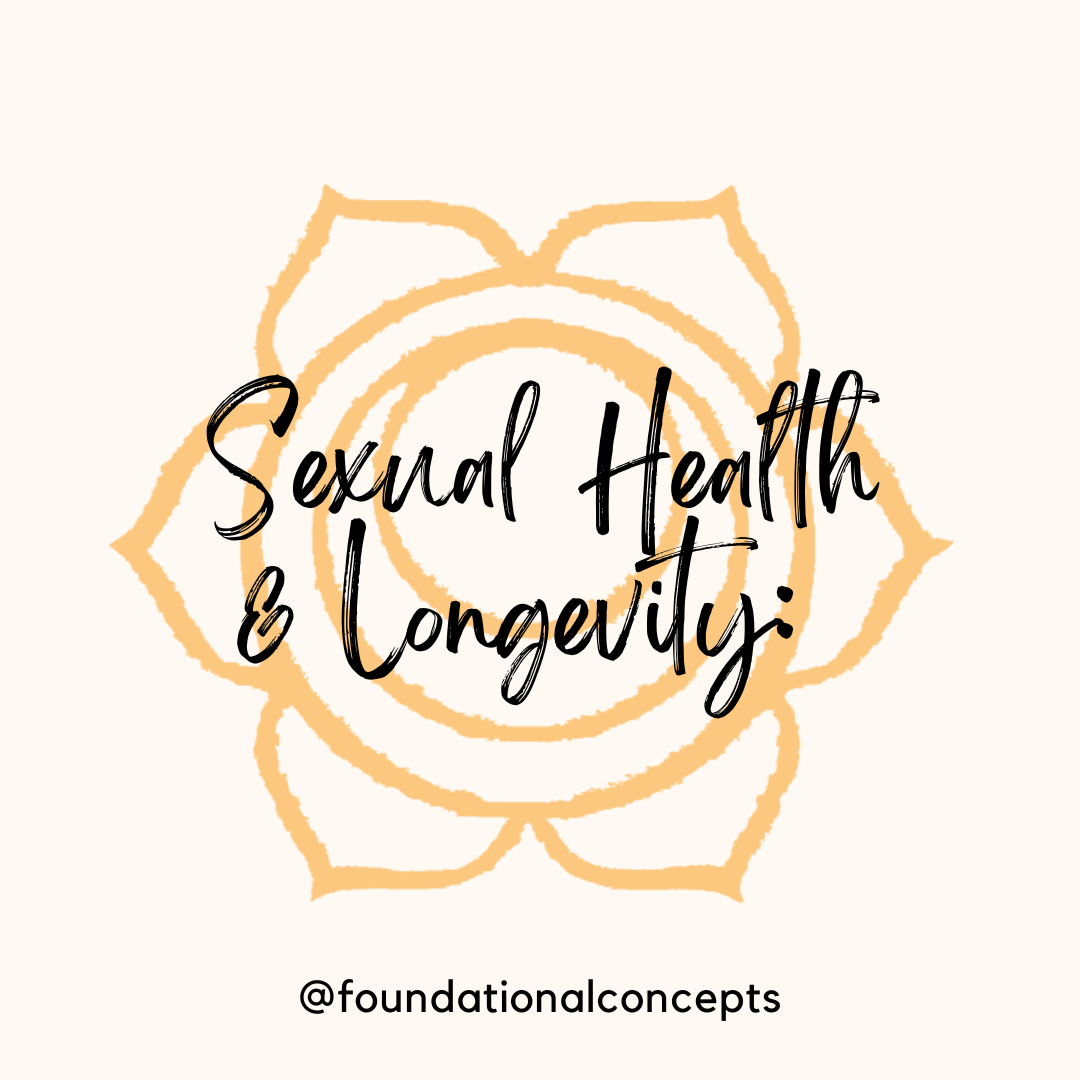
Sexual Health and Longevity: A Vital Part of Women’s Well-Being
Sexual health is an essential part of women’s overall well-being and quality of life. Beyond intimacy, emerging research shows that sexual health is closely linked to both physical and emotional health—and may even play a role in longevity.
Sexual Health as a Marker of Overall Health
Just like sleep, exercise, nutrition, and stress management, sexual health can serve as a marker for how well our bodies and minds are functioning. Studies consistently show that women who report satisfying sexual relationships also experience:
- Better overall physical health
- Lower rates of depression and anxiety
- Higher life satisfaction and sense of well-being
In other words, sexual health isn’t just about sexual function—it reflects a deeper connection between body, mind, and relationships.
How Sexual Health Changes With Age
It’s normal for sexual function and activity to change with age and menopause. Hormonal shifts can influence desire, arousal, and comfort, while other factors—like relationship quality, self-image, and stress—can play an even bigger role.
Interestingly, research shows that psychosocial factors—such as emotional support, optimism, and relationship satisfaction—are stronger predictors of sexual health than hormones alone. Women who maintain fulfilling emotional and physical connections often continue to enjoy satisfying sex lives well into later years.
The Link Between Sexual Health and Longevity
Studies have found that women with active, satisfying sexual lives often report higher levels of “successful aging” and longer lifespan, even when age-related changes in sexual function occur.
Some research even suggests that sexual activity is associated with lower all-cause mortality—including reduced risk of stroke in older women.
The connection seems to be influenced by several intertwined mechanisms:
1. Stress Buffering and Physiological Regulation
Emotional closeness and relationship satisfaction help buffer the effects of stress. Supportive relationships reduce overactivation of the body’s stress response (the HPA axis), which in turn lowers inflammation and supports cardiovascular and immune health—all factors linked to both longevity and sexual well-being.
2. Psychological Well-Being
Positive emotions, optimism, and relationship satisfaction are closely tied to sexual function and fulfillment. These same traits are associated with greater life satisfaction and reduced depression and anxiety, contributing to both mental and physical longevity.
3. Healthy Lifestyle Behaviors
Supportive relationships often encourage healthier habits—like being more physically active, eating better, and engaging in preventive healthcare. These behaviors directly support long-term health and vitality.
4. Biological Markers of Aging
Research has even found that women in emotionally supportive relationships tend to have longer telomeres—the protective caps on our DNA that shorten with age. Longer telomeres are associated with slower cellular aging and longer lifespan.
How to Support Sexual Health and Well-Being
The good news: sexual health and satisfaction can be nurtured at any age. Approaches that focus on both emotional and physical aspects of intimacy can make a meaningful difference.
1. Couple-Focused and Multidisciplinary Care
Programs that address sexual health alongside relationship satisfaction—through counseling, pelvic health physical therapy, or sexual medicine—can improve function, comfort, and overall satisfaction.
2. Open Communication and Education
Discussing age-related changes, normalizing sexual concerns, and improving communication within relationships are powerful ways to sustain intimacy and satisfaction as life evolves.
3. Building Emotional and Social Support
Strong social networks and emotional support systems contribute not only to a fulfilling sex life, but also to mental and physical resilience. Community, connection, and shared meaning are vital to long-term health.
In Summary
Sexual health is more than an aspect of intimacy—it’s a reflection of overall wellness and an important contributor to healthy aging. Women who experience satisfying sexual lives often enjoy better emotional health, lower stress, and even longer lifespans. It’s time we view sexual health as we do other essential health indicators—worthy of open discussion, proactive care, and lifelong attention.
References
- Sexuality. Dennerstein L, Lehert P, Burger H, Guthrie J. The American Journal of Medicine. 2005;118 Suppl 12B:59-63. doi:10.1016/j.amjmed.2005.09.034.
- Association Between Higher Levels of Sexual Function, Activity, and Satisfaction and Self-Rated Successful Aging in Older Postmenopausal Women. Thompson WK, Charo L, Vahia IV, et al. Journal of the American Geriatrics Society. 2011;59(8):1503-8. doi:10.1111/j.1532-5415.2011.03495.x.
- Psychobiological Factors of Sexual Functioning in Aging Women – Findings From the Women 40+ Healthy Aging Study. Mernone L, Fiacco S, Ehlert U. Frontiers in Psychology. 2019;10:546. doi:10.3389/fpsyg.2019.00546.
- A Biopsychosocial Approach to Women’s Sexual Function and Dysfunction at Midlife: A Narrative Review. Thomas HN, Thurston RC. Maturitas. 2016;87:49-60. doi:10.1016/j.maturitas.2016.02.009.
- Associations Between Sexual Health and Well-Being: A Systematic Review. Vasconcelos P, Carrito ML, Quinta-Gomes AL, et al. Bulletin of the World Health Organization. 2024;102(12):873-887D. doi:10.2471/BLT.24.291565.
- A Prospective Cohort Study on the Effect of Sexual Activity, Libido and Widowhood on Mortality Among the Elderly People: 14-Year Follow-Up of 2,453 Elderly Taiwanese. Chen HK, Tseng CD, Wu SC, Lee TK, Chen TH. International Journal of Epidemiology. 2007;36(5):1136-42. doi:10.1093/ije/dym109.
- Biopsychosocial Determinants of Sexual Health in Older Age: The Role of Health-Related, Relationship, and Psychosexual Factors. Vasconcelos PA, Paúl C, Nobre PJ. The Journal of Sexual Medicine. 2024;21(5):420-429. doi:10.1093/jsxmed/qdae027.
Disclaimer: This blog is here for your help. It is the opinion of a Licensed Physical Therapist. If you experience the symptoms addressed you should seek the help of a medical professional who can diagnose and develop a treatment plan that is individualized for you.









